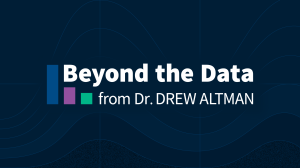The Collision of Medicaid World Views
 Conservatives want to impose work requirements on Medicaid beneficiaries (even though most are working and could qualify for exemptions under most proposals.)
Conservatives want to impose work requirements on Medicaid beneficiaries (even though most are working and could qualify for exemptions under most proposals.)
In the now infamous Project 2025, they are proposing time limits on Medicaid eligibility.
Project 2025 calls generally for some form of block grant, per capita cap, or form of reduced federal funding. In a more elaborate plan, the Republican Study Committee has proposed a series of block grants combining Medicaid and Affordable Care Act (ACA) coverage they estimate will reduce federal spending for low-income coverage by a startling $4.5 trillion over 10 years.
Another plan would switch some of the Medicaid population to the ACA exchanges and lower federal matching funds for others, reducing federal funding and the size of Medicaid and imposing significant new costs on states if they want to replace lost federal funding.
All of these policies are directly at odds with the directions Democrats would take on Medicaid. For a good discussion of the policy differences, read History Repeats—The Election Battle for Medicaid in 2024.
Most of these ideas are not new. They keep coming back because they reflect an ongoing desire conservatives have to reduce the scope of the federal role in health, unwind the Medicaid expansion, and cut federal spending. Conservatives may also believe Medicaid is a somewhat easier target politically than Social Security or Medicare and disproportionately serves Democratic voters.
But there is a deeper explanation for conservative Republican views of Medicaid and why their proposals to cut and cap the program are such a flashpoint with Democrats. Republicans and Democrats have fundamentally different world views of the program. Democrats view Medicaid as a health insurance program that helps people pay for health care; part of a continuum of coverage we have in our fragmented health system, which people move in and out of as their life and economic circumstances change. In sharp contrast, Republicans view Medicaid as a government welfare program. If you see Medicaid as “welfare”—another form of the dole—you might want to impose work requirements to receive it, or cut or cap it, or limit the number of years people can receive it. Even more, you might see a higher calling in doing these things to “reduce dependency” (what we should or should not do to provide basic income security in the country—welfare—and for whom, is an entirely different debate). Moreover, if you see Medicaid as health insurance, you naturally support expanding the program to cover low-income adults who will otherwise be uninsured. But if you see it as welfare, you might not support or even oppose Medicaid expansion.
This Medicaid world view is an underlying motivation behind Republican policy proposals, but the numbers in the chart below show why it has had a hard time prevailing. A majority, but only a narrow majority, of Republicans (54%) see Medicaid as welfare. Sixty percent of independents see it as insurance. And overall, 61% of the American people do.
There are two other key facts. Most Medicaid beneficiaries are Democrats or independents but about 20 million are Republicans or lean that way. And 71% of the public want to keep Medicaid the way it is today rather than converting Medicaid to a block grant. As the architects of these plans know, today’s Medicaid program is no pushover. It’s a popular program covering 82 million Americans and reaching broadly into American society. It is the primary health coverage program for the people with disabilities and for long-term care. It is also the single largest federal financing stream for states. And while providers complain about payment rates, many are also dependent on Medicaid.
Welfare reform carried the day because Americans believe in work and individual responsibility. But health care is not cash assistance and Medicaid is not welfare. And the Medicaid program has changed fundamentally since the days it mostly covered women and children on the old AFDC welfare program. The perception that Medicaid is a “welfare program” helps explain why these conservative policy proposals keep coming back in various forms, why they cause such heated ideological debate, and in the end, why they generally falter. The idea that Medicaid is welfare is not the majority view.
